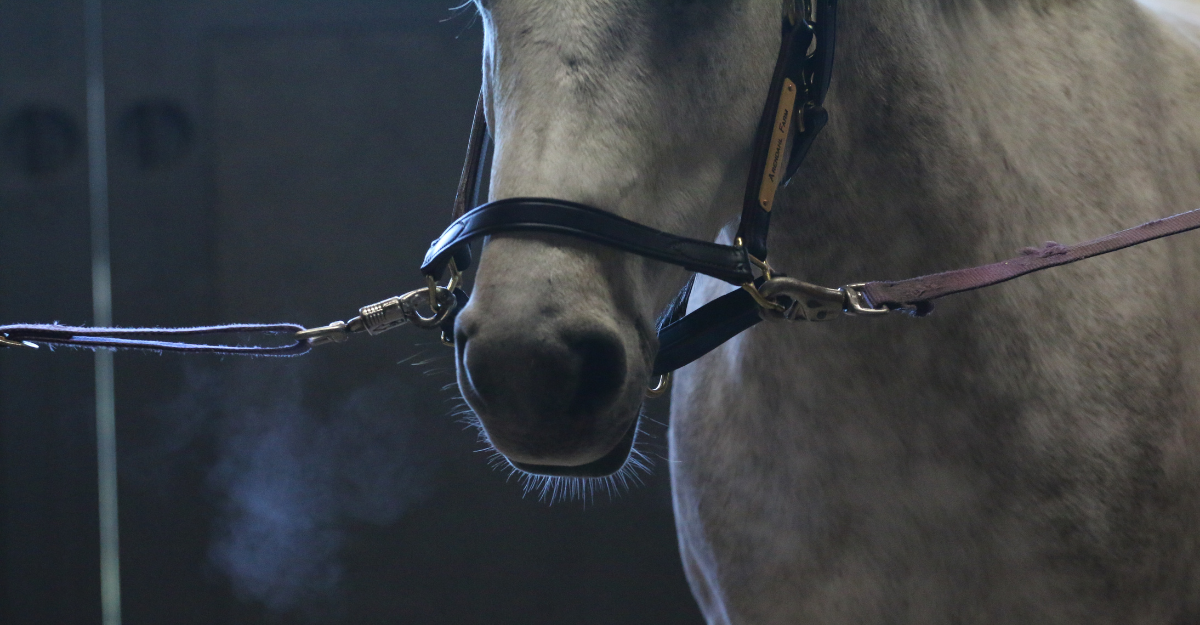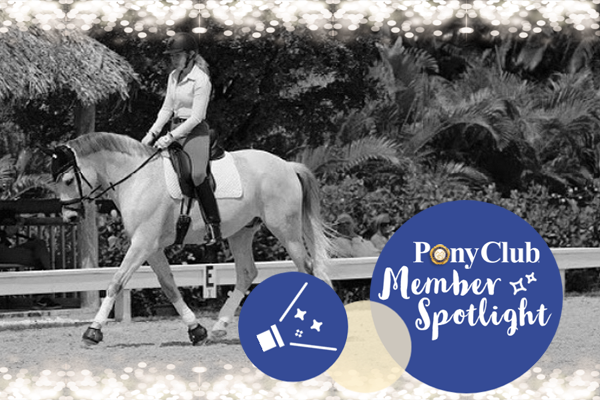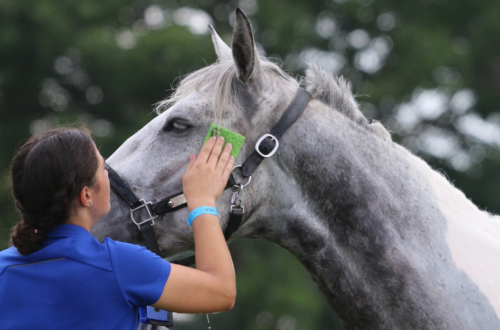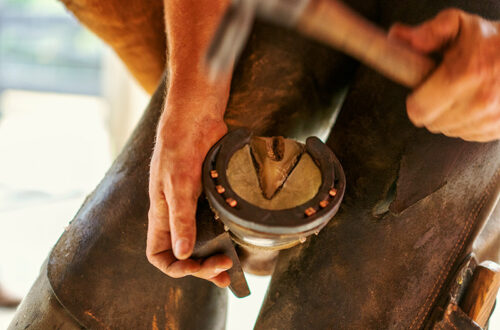
Equine Respiratory Health Tips
By Rae A. Birr, DVM
Fresh, clean air is essential to horses and humans. Our bodies have defenses to protect us from impurities and contagions in the air we breathe. However, our horses live in an environment that is particularly hostile to the respiratory system and can overwhelm the defenses. Here are some tips to keep your horse’s lungs healthy.
- Outside air is almost always best.
The exceptions to this rule are smoke-filled air from fires, or air polluted with other noxious particles, such as a pasture next to heavy traffic and vehicle exhaust or a dusty road. - Good ventilation in a stable is paramount to healthy horse lungs.
The best place for fresh air to enter a stall is below the horse’s knee level. This prevents drafts and keeps the fresh air where their noses are most of the time. - Keep stalls and trailers scrupulously clean.
Ammonia fumes from urine in a stall are very harsh on the respiratory tissues. Manure is a great place for bacteria to multiply, become airborne and assault the airways in a confined space. - Avoid dusty environments.
Sweep when the horses are outside or wet down the area to be swept to avoid airborne dust particles. Consider skipping horse show venues where the ring gets really dry and dusty. - Feed clean and dust-free hay and grain.
Mold in hay or grain is fairly obvious (your nose and eyes will usually tell you something is off), but these commodities can also be dusty. The “fines,” or dust in a bag of pellets can be small enough to be breathed in. The road dust on the last hay delivery can be readily breathed during storage or feeding. In the case of dust, wetting down hay or grain can help reduce the dust load in the horse’s nostrils. However, wetting down moldy feed does not make it safe to feed. - Avoid respiratory allergens.
Like people, horses can be allergic to many types of environmental particles, including pollens, molds and mildew, dust mites found in bedding and feed, and fungal spores. Sometimes we can identify a specific allergen and avoid it. Often, we just recognize certain environments that an individual horse cannot tolerate. Coughing and nasal discharge are signs of intolerance. - Avoid exercise in excessively cold air.
Cold air is hard on the respiratory systems of horses and people. People can stop their activity or wear a scarf when the cold hurts their lungs and their nostrils freeze, but our horses will readily keep working even through ice crystals entering their airways and doing tissue damage. Research says this process starts at 15 degrees Fahrenheit. As trainers and stable owners set different “too cold” exercise cutoff temperatures, the best rule of thumb is not to work your horse hard when the air makes your lungs or nose hurt. A brisk walk may be the best choice on those really cold days. - Don’t ignore respiratory symptoms.
An occasional cough or nasal discharge may be the warning signs of respiratory illness. A respiratory exam by your veterinarian can identify problems before they become serious. Catching a contagious disease early is best for the other horses in a group and best for treating the sick individual. Other non-contagious reasons for cough and nasal discharge should also be addressed early for best results. These include equine asthma (formerly called recurrent obstructive airway disease and many other names including “heaves”).
By simply paying attention to your horse’s environment, there is a lot you can do to prevent respiratory problems. Follow the tips above, and work to keep the air clean and fresh so that you and your horse can both breathe easy.
Rae A Birr, DVM is a graduate of Michigan State University College of Veterinary Medicine with a special interest in equine medicine and sport horse care. She has been involved with USPC since the ’70s, attaining a B certification, serving in local leadership positions and currently as Lake Shore Region Regional Supervisor, as a Governor on the Board and as Marketing and Communications Committee chair.




